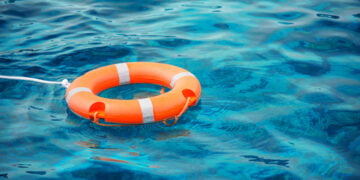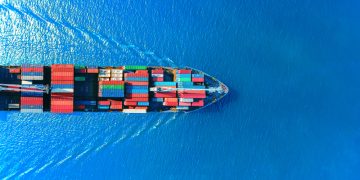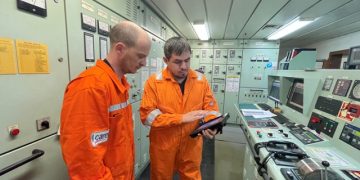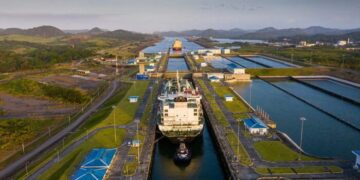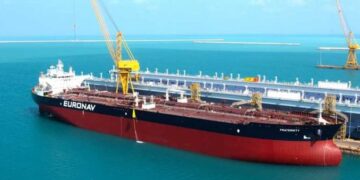Agreement on an increase in the ILO minimum wage for an AB seaman
 Seafarers, like many other workers around the world have, if still lucky enough to have a job, been enduring a pay freeze since the global financial crisis poured cold water on an overheating situation.
Seafarers, like many other workers around the world have, if still lucky enough to have a job, been enduring a pay freeze since the global financial crisis poured cold water on an overheating situation.
Now, it seems, the ice age for wages is over as the sun of recovery, albeit still shining weakly, begins to melt the frozen landscape of pay negotiations. The first breakthrough came, Spring-like, late in April when the Joint Maritime Commission (JMC) at the International Labour Organisation (ILO) met and, despite many differences of opinion, agreed on an increase in the ILO minimum wage for an able-bodied seaman (AB).
The new three-year deal will see the AB basic pay, currently USD 545 a month, rise by 7.3% from January next year to stand at USD 585 in December 2014. It is the first increase in the minimum since the last three-year agreement, reached in February 2006, took it from USD 500 to its present level.
The significance is that ship owners, represented by the International Shipping Federation (ISF), have for the last two years been telling their JMC counterparts, the International Transport Workers Federation (ITF), that prevailing market conditions meant no increase could be justified.
In the still fragile market conditions for shipping, a rise of 7%, albeit spread over three years, might seem a surprisingly high figure and there were, indeed, some on the ship owners side who were disappointed but went along with the majority decision. The ITF had held out for a bigger rise but must have been privately satisfied to have got any sort of increase over 5%, although they have been publicly more critical.
One ITF affiliate, in fact, noted that the rise had fallen short of seafarers demands but had provided a platform for further discussions in 2014.
A basic monthly wage of more than USD 500 a month for many is, of course, still a handsome amount when compared with that of seafarers compatriots working ashore. Daily income in the biggest labour-supplier of seafarers, The Philippines, for example, is just a few dollars for almost half the working population, according to the UN Development Program. Seafarers who are entitled to the ILO minimum are also likely to be paid up to 50% again in overtime and leave, taking the gross to around USD 900 a month.
The ILO minimum is, however, a highly controversial and essentially political issue. It is seen as a base for collective bargaining agreements around the world and is often cited in legal arguments involving seafarers pay. Many developing countries where domestic pay levels are substantially lower refuse to enforce it on their own ships, so it is used mainly in reference to crews on open-register ships and particularly those where the ITF is for various reasons unable to apply its far higher pay levels. On an open-register ship where an ITF agreement is in force, monthly basic pay for an AB is currently USD 1,675, a figure that has also been frozen since 2009.
The rise in the ILO minimum will almost inevitably mean a comparable rise in that ITF benchmark but the more intriguing question is whether it will mean a similar rise is agreed at the International Bargaining Forum (IBF) where the ITF meets with employers in the Joint Negotiating Group (JNG) and which significantly broke with the unilaterally imposed benchmark.
In September 2009 the IBF said it had agreed to hold fire on any increase in the agreement which, two booming years earlier, had set USD 55,417 a month as the total crew costs for a model 23-man ship. The freeze was the only realistic response to the then-dire market conditions, but it was also decided to hold a review of the methodology used to arrive at the model-ship costs. Since then the IBF has held numerous meetings around the world, most recently in March in London, without bridging the gap between the ITFs demand for a 10% rise and the employers initial counter-demand for a 10% cut.
Both sides have stressed there is no direct link between the ILO minimum and the IBF negotiations, but a link exists, if only in the minds of those who will be sitting around the negotiating table when the next meeting takes place next month in Miami. A continued freeze or, indeed, a cut of any magnitude seems now highly unlikely but, revised methodology aside, without an increase over the next two years, the possibility of the ITF walking away from the talks cannot be ruled out.
Nor should the likelihood of the existing tensions between the various groups in the JNG, who after all compete for the same pools of labour, being heightened by the talks be under-estimated. The agreement reached on the rise in the ILO minimum came only after talks described by both sides as difficult and with each accusing the other of unrealistic expectations.
With the rise at the ILO, the likely increase in the IBF agreement (to be followed by an equivalent rise in the ITF benchmark), some observers may be forgiven for thinking that a two-year hiatus has come to an end and things are getting back to something passing for normality.
They would be mistaken. The ITF has stated its aim of trying to get the ILO minimum applied to non-domiciled crews on national-flag ships where the London-based federations writ does not run. It has also long been trying to narrow the gap between the ILO rate and its own.
Employers in the JNG will continue to seek to achieve their own political aims such as loosening the grip ITF affiliates in developed economies, such as Japan and in Europe and Scandinavia, have over collective bargaining agreements with unions in developing countries like The Philippines.
The pay freeze may be coming to an end but a Winter of discontent is not about to turn into a glorious Summer for international labour relations.
Source: BIMCO








